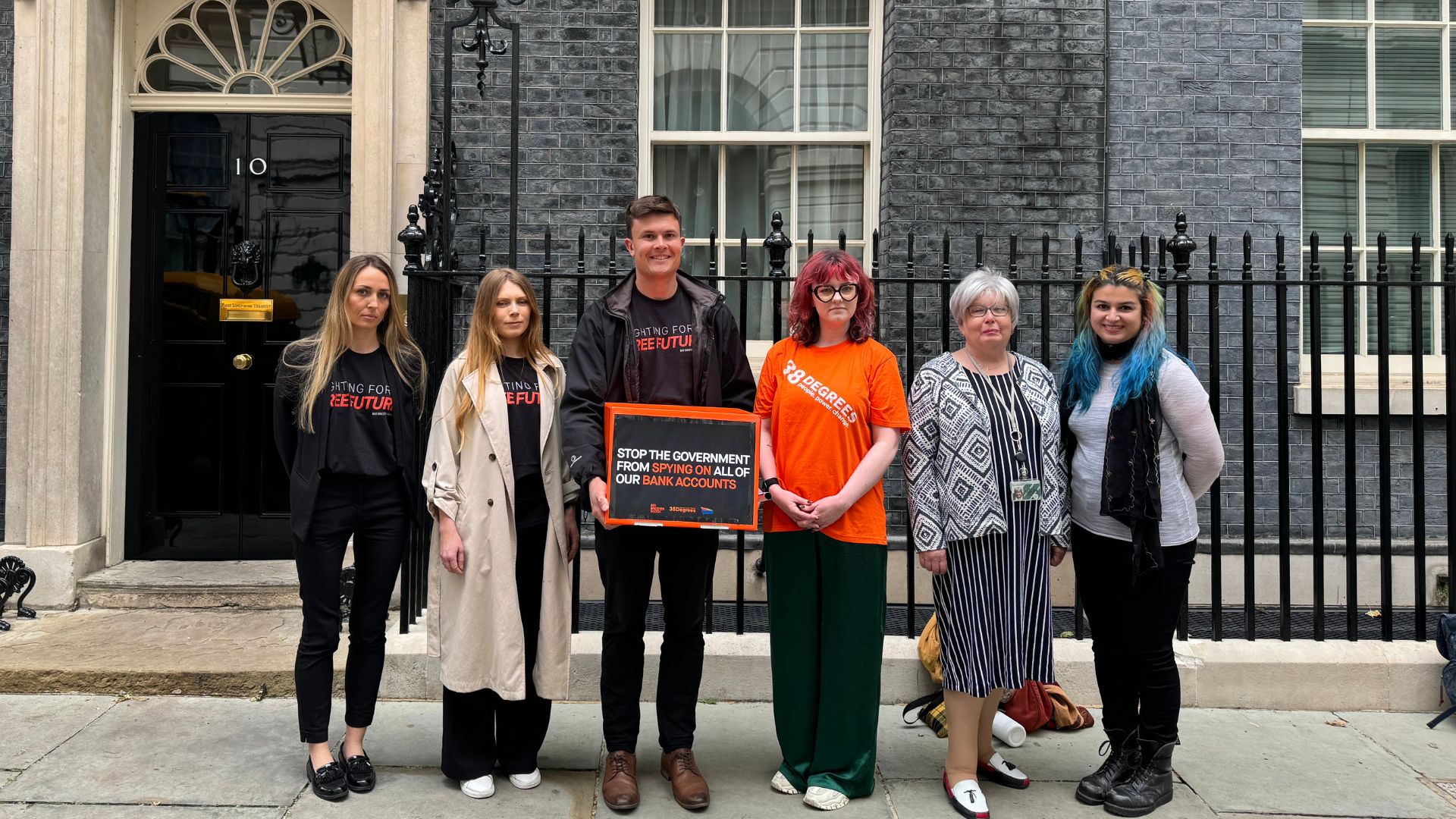Marion Fellows, previously the SNP’s spokesperson for disabilities, warned that the bill would “decimate civil liberties”.
“It’s a very slippery slope,” she told the Big Issue. “It’s not just the people who are receiving benefits, but those who rent to them, their friends or family, anyone involved with them. This is just an insidious way to actually track people who have given no cause for surveillance.
“And the really worrying point for me is that I don’t think the incoming Labour government – and I think there’s no doubt they will form the government – will do anything about it.”
The DPDI Bill is expected to be scrutinised at report stage in the coming weeks.
What new powers is the government proposing for the DWP?
The controversial financial surveillance powers were included in a late stage amendment to the DPDI Bill.
The new rules would allow the DWP to issue “account information notices” to banks and building societies requiring them to scan all customers’ accounts in search of signs that might indicate the possibility of welfare fraud or mistakes. Bank account holders’ would not be informed of the surveillance.
Advertising helps fund Big Issue’s mission to end poverty
Information in bank accounts may reveal people’s movements, opinions, medical information – though the DWP has claimed that the information provided will only be “limited and relevant”.
However, UK Information Commissioner John Edwards recently said he couldn’t confirm whether the law was a “proportionate” approach. He expressed concerns that the power “could be interpreted more widely” and that the drafting “leaves it open to being interpreted and applied more widely than DWP’s stated intention”.
Fellows described the law as an “attack on those who have long term disabilities, visible or invisible”. Indeed, legal experts have said that the plans could amount to “unlawful discrimination”, because they will have a “disproportionate impact on particular groups, including disabled people, people of colour, women and older people”.
Claire Glasman, founder member and co-ordinator of WinVisible, said that DWP surveillance is an “unacceptable intrusion”.
“You live in fear that a computer will decide you are a criminal and freeze your benefits… it’s like your life belongs to the DWP,” she said.
“Some people need the money for fuel bills, some are on special diets, there are things you can’t get from the NHS, there are transport costs… it feels like that is all going to be suspiciously examined. It’s really scary.”
Advertising helps fund Big Issue’s mission to end poverty
The fraud rate for disability benefit personal independence payment is only 0.2%.
Mikey Erhardt, campaigner at Disability Rights UK, said that the fraud justification for the laws were “groundless” – but that they would create an “uncontrollable digital panopticon”.
“It looks like we’re sleepwalking into another Horizon [post office] scandal,” he warned. “The government’s latest dalliance with untested, unscrutinised, and potentially unlimited powers for new “bank scanning” algorithms will be used to tackle an issue seemingly so out of control that the fraud rate for disability benefits is only 0.2%. Their plans are essentially a digital sledgehammer to crack the tiniest nut.”





